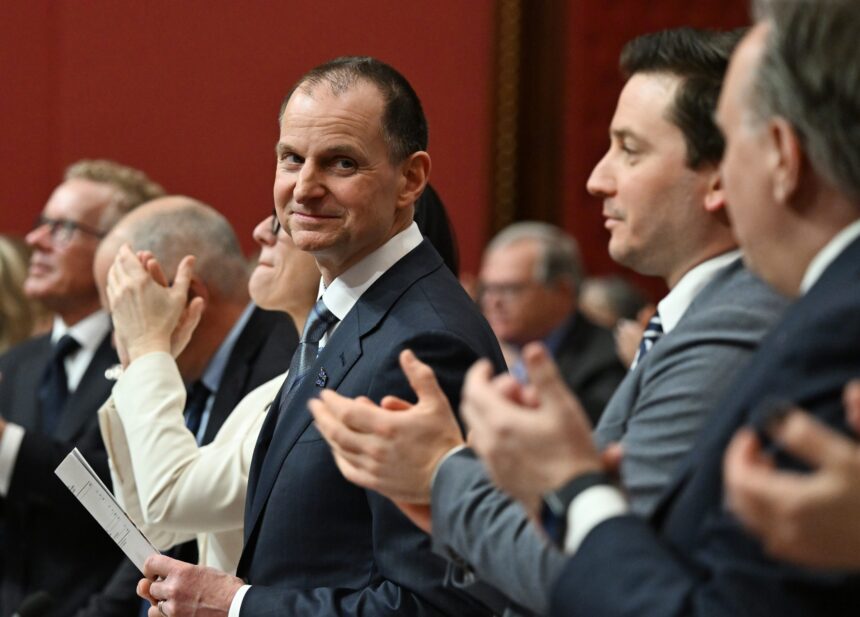In a surprising turn of fiscal events, Quebec’s budget deficit for 2024-25 has come in at $3.2 billion less than initially projected, according to figures released yesterday by Finance Minister Eric Girard. The province reported a $7.5 billion shortfall, substantially below the $10.7 billion forecast in the March budget announcement, signaling potential economic resilience amid challenging conditions.
“The improved deficit position reflects both prudent fiscal management and stronger-than-anticipated economic performance in key sectors,” Girard stated during a press conference at the National Assembly. “While we remain cautious about declaring victory, these figures represent a positive development for Quebec’s financial outlook.”
The reduced deficit stems primarily from a 2.3% increase in tax revenues—approximately $1.8 billion higher than projected—driven by robust performance in Quebec’s technology and manufacturing sectors. Additionally, provincial spending on pandemic-related healthcare initiatives decreased by roughly $950 million as COVID-19 pressures continued to ease throughout the fiscal year.
The Canada News desk has been tracking Quebec’s fiscal situation closely, as the province has historically maintained one of the highest debt-to-GDP ratios among Canadian provinces. This latest financial report suggests the province may be turning a corner faster than anticipated.
Economic analysts from major financial institutions have noted the significance of these results. “Quebec’s improved fiscal position creates additional flexibility for the government to address both short-term economic challenges and long-term structural issues,” explains Marie Tremblay, chief economist at National Bank Financial. “However, demographic challenges and infrastructure needs continue to pose substantial fiscal pressures.”
The provincial government has emphasized that despite the improved numbers, Quebec’s overall debt burden remains significant. The net debt-to-GDP ratio stands at 38.4%, down slightly from last year’s 39.1%, but still considerably higher than the Canadian provincial average of 31.7%.
Opposition critics have cautiously acknowledged the positive fiscal news while questioning the government’s broader economic strategy. Liberal finance critic Carlos Leitão pointed out that “while the improved deficit position is welcome, we must examine whether these gains came at the expense of needed investments in healthcare and education—areas where Quebec continues to face significant challenges.”
According to CO24 Business analysis, Quebec’s economic growth rate of 2.1% for the fiscal year exceeded the national average of 1.8%, supported by strong exports to the United States and increased domestic consumption.
The provincial government has indicated that the better-than-expected fiscal performance will not trigger immediate policy changes, but may create space for targeted investments in the upcoming fall economic update. Premier François Legault has previously identified healthcare reform, education, and infrastructure as priority areas.
Looking ahead to 2025-26, Minister Girard maintained the government’s commitment to returning to a balanced budget by 2027-28, though he acknowledged persistent economic headwinds including global trade tensions and inflationary pressures that could impact future revenues.
As Quebec navigates its fiscal recovery, a critical question emerges: will the province leverage this unexpected financial breathing room to accelerate debt reduction, or will it prioritize investments in public services and economic stimulus measures to address longstanding structural challenges?










